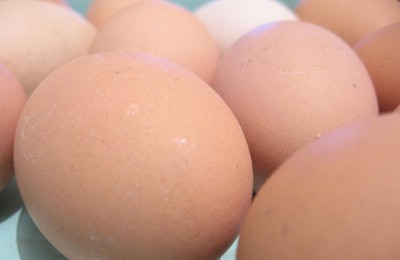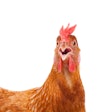
United Kingdom-based Noble Foods has announced it will supply only cage-free eggs from 2025.
Making a group-wide commitment to cage-free egg production, Noble Foods said the decision had taken many months of planning to meet the challenges of this change. The firm says it is working with its egg producers and retail partners to ensure a trouble-free transition.
Based in Witney, Oxfordshire, Noble Foods is a leading British egg producer. As well as its own farms, the firm works with contract egg producers, and its integrated operations include poultry processing, feed milling and prepared foods, according to the WATTAgNet Top Poultry Companies Database. Among its brands is the happy egg co., the largest egg brand in the U.K. with a growing presence in the U.S.
Noble Foods’ roots go back to the 1920s, when William Dean began collecting eggs from smallholders and selling them door-to-door from a horse and cart, according to the company’s web site. Soon afterwards, Dean began packing the eggs.
Since the 1980s, the firm bought Goldenlay, Dell and Hardie, Daylay, and Freshlay. In 2006, Michael Kent — the then-owner of Stonegate — acquired half of the business and formed what is now known as Noble Foods.
Noble Foods purchased two dessert businesses in 2010, and in 2015, it acquired Bowler Energy to form Noble Green Energy.
The latest international survey, Business Benchmark on Farm Animal Welfare, put Noble Foods in its second highest tier based on analysis of farm animal welfare management and performance, indicating that the firm is making animal well-being an integral part of its business strategy. Eleven other companies also achieved this ranking.
For the first time in 2017, production of free-range eggs in the U.K. overtook output from enriched cages, according to data from the agriculture ministry, Defra, with 48.4 percent and 48.0 percent, respectively, of the total production of just over 10.78 billion eggs. The number of organic eggs increased slightly from the previous year but they accounted for 2.4 percent of all eggs produced in the U.K. There has been a decline in output of barn eggs over recent years, and this category had a share of just 1.3 percent in 2017.
U.K. self-sufficiency in eggs last year was 86 percent, according to industry data from the British Egg Information Service.
Despite a large number of pledges by U.S. restaurant chains, food service distributors, retail outlets and food companies to purchase only cage-free eggs at some future date, demand is not keeping up with supply in that country. With signs that cage-free eggs were coming into surplus in 2017, two of the largest egg producers announced adjustments to their cage-free programs.
Comprehensive resource for cage-free eggs available
A new collection of exclusive articles, blogs and infographics on Cage-free Eggs and Consumer Trust in the Poultry Industry, written by trusted WATT Global Media editors and industry experts will equip egg producers and marketers with information to help them make critical business decisions. Purchase your copy.

















